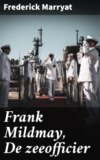Kitabı oku: «Newton Forster», sayfa 9
Chapter XV
"Lucy—Are all these wretches slaves?
Stanley—All sold, they and their posterity, all slaves.
Lucy—O! miserable fortune!
Bland—Most of them know no better, but were
Born so, and only change their masters."
Oroonoko
The party were up at an early hour on the ensuing morning, that they might enjoy the delightful freshness of the air, which so soon evaporates before the scorching rays of the tropical sun. They were joined at breakfast by the doctor who attended the estate, and who had called in to announce the birth of a little negro boy in the early part of the night.
"Who did you say, doctor?" answered the planter, "Mattee Sally? Why, I thought Jane Ascension was in advance of her."
"They were running it neck and neck, sir," replied the surgeon.
"How is she—quite hearty?"
"Quite, sir; but very anxious about the child's name, and requests to speak with you as soon as you have breakfasted."
"We will go to her. You have no idea," observed the planter to Mr Berecroft and Newton, "what importance these people attach to the naming of their children. Nothing but a fine long name will satisfy them. I really believe, that if I refused her, or called the boy Tom, she would eat dirt. I believe we have all done: Boy Jack, bring the sangoree. Doctor, I daresay that your clay wants moistening, so take the first pull."
This important commencement and finale to the repast having been duly administered, they proceeded to the range of buildings before mentioned, in one of which they found the lady in the straw, sitting up, and showing her white teeth at her master's approach, as if nothing very particular had occurred.
"Well, Mattee, how are you?" said the planter. "Where's the piccaninny?"
"Ab um here, sar—keep im warm," replied the woman, pointing to a roll of blanket, in which the little creature was enveloped.
"Let us see him, Mattee."
"No sar, too cold yet—bye bye, massa, see um; make very fine sleep now. Suppose white piccaninny, suppose black piccaninny—all same—like plenty sleep. Um know very well, hab plenty work to do bye bye—sleep all dey can, when lilly."
"But you'll smother him," observed Newton.
"Smoder him?—what dat—eh?—I know now massa mean, stop um breath. No: suppose him no smoder before, no smoder now, sar. Massa," continued the woman, turning to the planter, "no ab name for piccaninny?"
"Well, Mattee, we must find one; these gentlemen will give him a name. Come, captain, what name do you propose?"
"Suppose we christen him Snub," replied Berecroft, winking at the rest.
"Snob! What sart a name you call dat, sar?" replied the woman, tossing up her head. "Snob! no, sar, you 'front me very much. Snob not proper name."
"Well, then, Mr Forster," said the planter, "try if you can be more fortunate."
"What do you think of Chrononhotonthologus?" said Newton to the woman.
"Eh! what dat?—say that again, sar," replied the woman.
"Chrononhotonthologus."
"Eh! dat real fine name for piccaninny," cried the woman, with delight in her countenance. "Many tanky, sar. Chroton—polygarse."
"No, no," replied Newton, laughing; "Chrononhotonthologus."
"Es, hab um now—Hoton—tolyglass."
"No, that's only part. Chronon—hoton—thologus."
"I see—very fine name—Proton—choton—polyglass."
"Yes, that's nearer to it," replied Newton.
"Well, then, that point's settled," said the planter to the woman. "Is it all right, Mattee?"
"Es, massa; many tanks to gentleman—very fine name, do very well, sar."
"Doctor, put the name down opposite the register of the birth. Now, Mattee, all's right, good-bye," said the planter, leaving the room and followed by the others.
"Do you really intend to call the child by that name?" inquired Mr Berecroft.
"Why not? it pleases the woman, and is as good as any other; it is of no consequence. They almost all have names, certainly not quite so long as the present; but as they grow longer, their names grow shorter. This name will first be abbreviated to Chrony; if we find that too long, it will be reduced again to Crow; which, by-the-bye, is not a bad name for a negro," said the planter, laughing at the coincidence.
Reader, did you ever, perchance, when in a farmyard, observe a hen or other domestic fowl, who having pounced upon half a potato, or something of the same description, too large to be bolted down at once, tries to escape with her prize, followed by all the rest, until she either drops it or eludes their vigilance? If so, you form some idea of a negro woman with a hard word in her mouth; which, although she does not know the meaning of, she considers as an equal treasure.
Newton had turned round to the courtyard, in the centre of which several women were sitting down at various employments; when one who had been busied in some little offices for the woman whom they had just visited, and had in consequence been present at the choice of the name, took her seat with the party in question. To several queries put to her she replied with extreme hauteur, as if she considered them as impertinent, and frowned upon her companions most majestically.
After a short time she rose, and turning round, with the look of an empress, said, "Now, I shall go look after my Hoton-poton-pollybass."
"Eh?" cried one, opening her eyes with wonder.
"What dat?" screamed another.
"How you call dat long ting?" demanded a third.
"Eh! you tupid black tings," replied the proud possessor of the new word, with a look of ineffable scorn, "you no know what um call Poton-hoton-poll-fass. Me no tell you," continued she, as she walked away, leaving the others almost white with envy and astonishment.
Shortly after this Mr Kingston with his party took their leave of the hospitable old planter, and commenced their return to Bridgetown. They had not proceeded further than a quarter of a mile, when, ascending a little hill, Newton discovered that a negro was assisting his own ascent by hanging on to the tail of his mule.
"How do you do this morning, sar?" said the man, grinning, as Newton looked round.
"I'm very well, sir, I thank you; but I'm afraid I shall not be able to keep up with the rest, if my mule has to pull you up hill, as well as carry me."
"Es, sar, mule go faster. Massa not understand; mule very obstinate, sar. Suppose you want go one way, he go anoder—suppose you pull him back by tail, he go on more."
"Well, if that's the case, you may hold on. Do you belong to the plantation?"
"No, sar, me free man. Me work there; carpenter, sar."
"A carpenter! How did you learn your trade, and obtain your freedom?"
"Larn trade board man-of-war, sar—man-of-war make me free."
Mr Berecroft, who had been listening to the colloquy, took up the discourse.
"Were you born in this country?"
"No, sar! me Ashantee man."
"Then how did you come here?"
"Why, sar, ab very fine battle in Ashantee country. Take me and send me down to coast; sell me for slave. Go on board French schooner—English frigate take schooner, send me to Sarra Leon."
"Well, what did you do there?"
"Bind 'prentice, sar, to Massa Cawly, for farteen years—all de same as slave; work very hard; yam bad; plenty fever in dat country—much better here."
"Then how did you get away from Sierra Leone?"
"Go to sleep one day in de bush—tieves come steal me, take me down to coast, sell me again."
"Well, where did you go then?"
"Bard schooner again, sar. Another man-of-war take schooner in West Indies: send her in prize. Keep me and some on board becase want hands; keep me, becase speak little English."
"How did you like a man-of-war?" inquired Newton.
"Man-of-war very fine place; but all slaves there—captain steal men every ship he come to. But sailor no tink so; ebery night we all sing, Britong nebber, nebber, nebber, will be slave. Make me laugh, sar," continued the man, showing his teeth with a broad grin.
"What was the frigate's name?"
"Very fine name, sar, call her Daddy Wise."3
"How long were you on board of her?"
"Far year, sar; larn carpenter trade—go to England—pay off—get plenty money—come out here in marchant vessel; England very fine place, but too much cold," said the negro, shuddering at the bare recollection.
"Now, tell me," said Kingston, "of course you recollect being in your own country? Which do you like best—that or this?"
"Ashantee very good country—Barbadoes very good country. Ashantee nebber work, hab no money—here plenty work, plenty money."
"Well, but where would you rather be—here or there?"
"Don't know, sar. Like to find country where no work, plenty money."
"Not singular in his opinion," observed Newton.
"Men do all work here, sar: women only talk," continued the negro. "My country, men nebber work at all—women do all work, and feed men."
"Then what does the man do?" inquired Berecroft.
"Man, sar," replied the negro, proudly, "man go fight—go kill."
"Is that all?"
"Yes, sar, that all."
"So, you then mean to say, that if you could go back to Ashantee now you would remain there?"
"Yes, sar, stay there—do no work—sleep all day—make women feed me."
"How inveterate is early habit!" observed Mr Berecroft. "This man, although free in a civilised country, would return to his idleness, and resume his former ignorance."
"And so would every slave not born in the country. It requires one or two generations to destroy this savage nature," replied Kingston. "I believe, idleness, like gout, to be a hereditary disease, either in black or white; I have often observed it in the latter. Now, until man labours there is no chance of civilisation: and, improved as the race of Africa have been in these islands, I still think that if manumitted, they would all starve. In their own country nature is so bountiful that little or no labour is required for the support of life; but in these islands the soil, although luxuriant, must be nurtured."
"You do then look forward to their ultimate freedom?" inquired Newton.
"Most assuredly. Already much has been done, and if not persecuted, we should be able and willing to do much more."
"The public mind in England is certainly much inflamed against you," said Berecroft.
"It is; or rather, I should say, the more numerous public composed of those persons unable to think for themselves, and in consequence, led by others styling themselves philanthropists, but appearing to have very jesuitical ideas with regard to truth. This I have no hesitation in asserting, that if philanthropy had not been found to have been so very profitable, it never would have had so many votaries: true philanthropy, like charity, begins at home. Observe how the papers teem with the misery of the lower classes in England, yet this affects not the West India philanthropist. You perceive not their voices raised in behalf of their suffering countrymen. They pass the beggar in the street; they heed not the cry of starvation at home; but everywhere raise petitions for emancipation; or, in fact, for the destruction of the property of others. That it is an invidious property, I grant, and I wish I could dispose of mine; but that is not so easy. My ancestors embarked their capital in these islands upon the faith and promises of the country, when opinions were very different from what they are now, and I cannot help myself. However, the time will come when England will bitterly rue the having listened to the suggestions and outcries of these interested people."
"I do not understand you. How do you mean?"
"I said before, that it was on the faith of the country that we embarked our property in these islands. You are not perhaps aware, that when, in the reign of Queen Anne, the Assiento treaty was made, by which we obtained the privilege of supplying all the islands with slaves, it was considered as one of the most important acquisitions that could be obtained. Public opinion has now changed; but if a nation changes her opinion, she must at the same time be just. Let the country take our estates and negroes at a fair valuation, and we shall be most happy to surrender them. If she frees the slaves without so doing, she is guilty of robbery and injustice, and infringes on the constitution of the country, which protects all property, and will of course allow us to decide upon our own measures."
"May I inquire what those would be?"
"Throwing off the yoke, declaring ourselves independent, and putting ourselves under the protection of America, who will gladly receive us, aware that we shall be a source not only of wealth but of security."
"Would America risk a war to obtain these islands?"
"She would be foolish not to do so; and England would be more than foolish to engage in one. It is true, that if not immediately supported by America, England might create a scene of confusion and bloodshed in the colonies; but the world has too often had the severe lesson, that colonies once detaching themselves are never to be regained. England would therefore be only entailing a useless expense, however gratifying it might be to her feelings of revenge."
"But do you think that this is likely to occur?"
"I do, most certainly, if those who govern continue to listen to the insidious advice of the party denominated 'Saints'; and I am afraid that it will not be until these islands are separated from the mother-country, that she will appreciate their value. Our resolution once formed, we white slaves (for slaves we are) will not flinch; and the islands of the Caribbean Sea will be enrolled as another star, and add another stripe to the independent flag, which is their natural protector."
"I trust that will never come to pass."
"And so do I, Mr Berecroft; for I am an Englishman, and love my country, and the loss of these colonies would be a blow from which England would never recover."
"You forget her extensive colonies in the East."
"I do not; but the West Indies add to her wealth and her commercial prosperity, to her nursery of seamen and her exhausted revenue. They, on the contrary, add only to her grandeur, for they cost the country three millions a year; and I doubt whether at that expense it is worth while to retain any colony, however vast and extensive it may be. I consider, that if the East India ports were open to all the world, and the territory governed by its former princes, England, with all the competition which would take place, would yet be a gainer; and, on the other hand, I know that by the loss of these islands, she would find a decrease of millions in her revenue."
"Then the philanthropists must pay the national debt?" observed Newton, laughing.
"They be d–d!" replied Kingston, who was warm with his argument; "they would not pay a farthing."
Chapter XVI
"The sea-breach'd vessel can no longer bear
The floods that o'er her burst in dread career.
The labouring hull already seems half fill'd
With water, through an hundred leaks distill'd:
Thus drench'd by every wave, her riven deck,
Stript and defenceless, floats a naked wreck."
FALCONER.
Newton remained at Bridgetown, under the roof of Mr Kingston, for more than three weeks, by which time the brig was laden, and waiting for convoy to proceed to England.
Mr Berecroft had made every preparation for his voyage, when an unexpected circumstance occurred, which eventually proved the occasion of great hardship and danger to Newton. This was, the master of a large ship belonging to the same owners, and then lying in Carlisle Bay, to proceed homeward by the same convoy, had so ingratiated himself with a wealthy widow residing upon the island, that rather than he should again trust himself to the fickle element, she had been induced to surrender up to him her plantation, her negroes, and her fair self,—all equally bound to honour and obey through their future lives.
Mr Berecroft, in consequence of this resignation of his brother captain, was appointed to the command of the larger vessel; and Jackson, the first mate, ordered to take the command of the Eliza and Jane. This was a sad blow to Newton, and one which he could not avoid, as Mr Berecroft could not take him in his new ship,—all the subordinate situations being already filled up.
At first, he was inclined to quit the brig; but by the advice of Mr Berecroft and Kingston, he was persuaded to go the passage home, as he was now first mate of the vessel, and would incur forfeiture of all wages if he broke the articles which he had signed at Liverpool. Unpleasant as the prospect was, he was further induced by Berecroft's assurance, that now Jackson was provided for, he would arrange with the owners that Newton should be appointed the first mate of his own ship, as soon as they arrived in England.
In a few days the men-of-war made their appearance. Newton, who had remained on shore until the last moment, shook hands with his friendly patron, and thanking Mr Kingston for his kindness, went on board of the vessel with a sorrowful and foreboding heart.
Nor was he at all inclined to cheer up as he stepped on the deck of the brig, and beheld Jackson with a handspike, still brandishing over his head, standing across the body of one of the seamen, whom he had just dashed to the deck with the implement in his hand. At the sight of Newton, the wrath of the new captain appeared to be increased. He eyed him malevolently, and then observed, with a sneer, "That's what all skulkers may expect on board of my vessel."
Newton made no answer, and Jackson went forward, where the remainder of the crew were heaving up the anchor with the windlass. Newton walked up to the seaman, who appeared still insensible, and examined him. The iron plate at the end of the handspike had cut deep into the skull, and there was every appearance of a contusion of the brain.
Calling the boy who attended the cabin, Newton, with his assistance, carried the man below, and laid him in his berth. He then repaired on deck, and took the helm, the anchor of the brig being atrip. In a quarter of an hour the sail was on her, and she followed the course steered by the men-of-war, who were about to run through the other islands, and pick up several vessels, who were waiting for their protection.
"If you expect an easy berth as first mate, you are mistaken, my joker," said Jackson to Newton, as he steered the vessel; "you've skulked long enough, and shall now work double tides, or take the consequence. If you don't, I'll be d–d!"
"I shall do my duty, Mr Jackson," replied Newton, "and fear no consequences."
"Indeed! You saw how I settled a skulk just now;—beware of his fate!"
"I neither anticipate it, nor fear it, Mr Jackson. If it comes to handspikes, two can play at that game. I rather think that before many hours are over you will be sorry for your violence, for I believe that man to be in considerable danger. Even now, I should recommend you to demand surgical assistance from the frigate."
"Demand it, if you dare—I am captain of this ship, sir. The rascal may die—and be d–d!"
To this disgusting speech Newton made no reply. He had made up his mind to put up with everything short of downright aggression, and for three days more he obeyed all orders, however arbitrary and however annoying. During this period the man who had been injured became gradually worse: his illness increased rapidly; and on the fifth day he became delirious, and in a state of high fever, when Newton again pointed out the propriety of asking surgical aid from one of the men-of-war. This suggestion was answered by Jackson, who was now really alarmed, with a volley of oaths and execrations, ending with a flat refusal. The crew of the brig murmured, and collected together forward, looking occasionally at the men-of-war as they spoke in whispers to each other; but they were afraid of Jackson's violence, and none ventured to speak out. Jackson paced the deck in a state of irritation and excitement as he listened to the ravings of his victim, which were loud enough to be heard all over the vessel. As the evening closed, the men, taking the opportunity of Jackson's going below, went up to Newton, who was walking aft, and stated their determination that the next morning, whether the master consented to it or not, they would hail the frigate, and demand surgical assistance for their shipmate. In the midst of the colloquy, Jackson, who hearing the noise of the people overhead coming aft, had a suspicion of the cause, and had been listening at the bottom of the ladder to what was said, came up the hatchway, and accusing Newton of attempting to raise a mutiny, ordered him immediately to his cabin, stating his intention of sending him on board of the frigate the next morning to be placed in confinement.
"I shall obey your order," replied Newton, "as you are in command of this vessel. I only hope that you will adhere to your resolution of communicating with the frigate." So saying, he descended the companion hatch.
But Jackson, who, both from the information of the cabin-boy, and the fact that the incoherent ravings of his victim became hourly more feeble, thought himself in jeopardy, had no such intention. As the night closed in, he remained on deck, gradually taking off first one sail and then another, until the brig was left far astern of the rest of the convoy, and the next morning there was no other vessel in sight; then, on pretence of rejoining them, he made all sail, at the same time changing his course, so as to pass between two of the islands. Newton was the only one on board who understood navigation besides Jackson, and therefore the only one who could prove that he was escaping from the convoy. He was in confinement below; and the men, whatever may have been their suspicions, could not prove that they were not steering as they ought.
About twelve o'clock on that day the poor sailor breathed his last. Jackson, who was prepared for the event, had already made up his mind how to proceed. The men murmured, and proposed securing Jackson as a prisoner, and offering the command to Newton. They went below and made the proposal to him; but he refused, observing, that until it was proved by the laws of the land that Jackson had murdered their shipmate, he was not guilty, and therefore they had no right to dispossess him of his command; and until their evidence could be taken by some of the authorities, he must remain; further pointing out to them, that as he could be seized immediately upon his arrival at an English port, or falling in with a man-of-war during their passage, the ends of justice would be equally answered, as if they committed themselves by taking the law into their own hands.
The men, although not satisfied, acquiesced, and returned to their duty on deck. Jackson's conduct towards them was now quite altered; he not only treated them with lenity, but supplied them with extra liquor and other indulgences, which, as captain, he could command. Newton, however, he still detained under an arrest, watching him most carefully each time that he was necessitated to come on deck. The fact was, Jackson, aware that his life would be forfeited to the laws of his country, had resolved to wreck the brig upon one of the reefs to the northward, then take to his boats, and escape to one of the French islands. At his instigation, the body of the man had been thrown overboard by some of the crew, when they were in a state of half intoxication.
Newton, who had been below four days, had retired as usual to his hammock, when a sudden shock, accompanied by the fall of the masts by the board, woke him from a sound sleep to all the horrors of shipwreck. The water pouring rapidly through the sides of the vessel, proved to him that there was no chance of escape except by the boats. The shriek, so awful when raised in the gloom of night by seamen anticipating immediate death, the hurried footsteps above him, the confusion of many voices, with the heavy blows from the waves against the side of the vessel, told him that the danger was imminent, even if escape were possible. He drew on his trousers, and rushed to the door of his cabin. Merciful Heaven! what was his surprise, his horror, to find that it was fastened outside. A moment's thought at the malignity of the wretch (for it was indeed Jackson, who, during the night, had taken such steps for his destruction) was followed by exertions to escape. Placing his shoulders against his sea-chest, and his feet against the door, his body in nearly a horizontal position, he made a violent effort to break open the door. The lock gave way, but the door did not open more than one or two inches; for Jackson, to make sure, had coiled down against it a hawser which lay a few yards further forward in the steerage, the weight of which the strength of no five men could remove. Maddened with the idea of perishing by such treachery, Newton again exerted his frantic efforts—again and again, without success. Between each pause, the voices of the seamen asking for the oars and other articles belonging to the long-boat, proved to him that every moment of delay was a nail in his coffin. Again and again were his efforts repeated with almost superhuman strength; but the door remained fixed as ever. At last, it occurred to him that the hawser, which he had previously ascertained by passing his hand through the small aperture which he had made, might only lay against the lower part of the door, and that the upper part might be free. He applied his strength above, and found the door to yield: by repeated attempts he at last succeeded in kicking the upper panels to pieces, and having forced his body through the aperture, Newton rushed on deck with the little strength he had remaining.
The men—the boat—were not there: he hailed, but they heard him not; he strained his eyes—but they had disappeared in the gloom of the night; and Newton, overcome with exhaustion and disappointment, fell down senseless on the deck.










